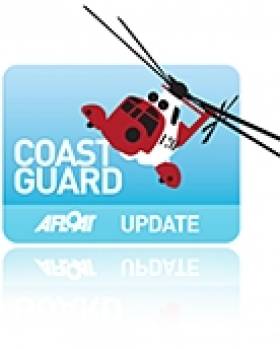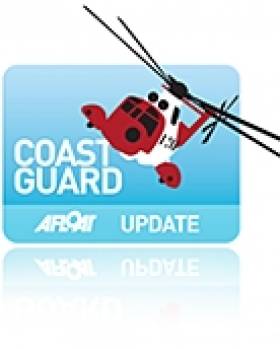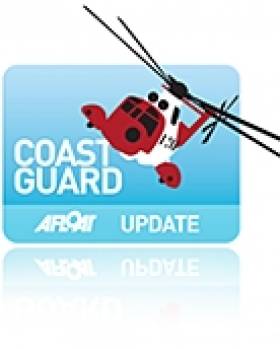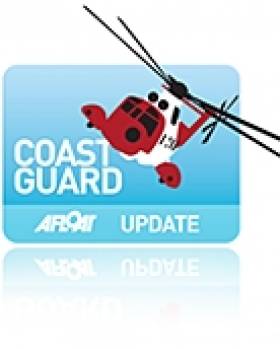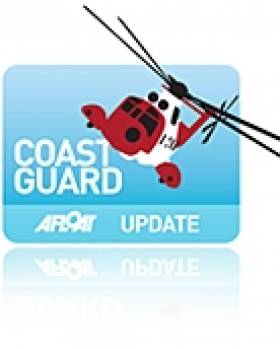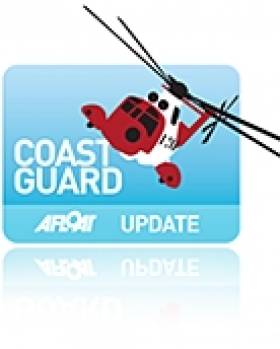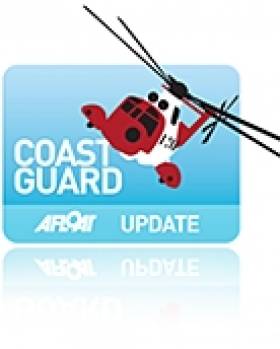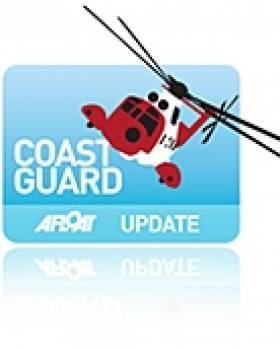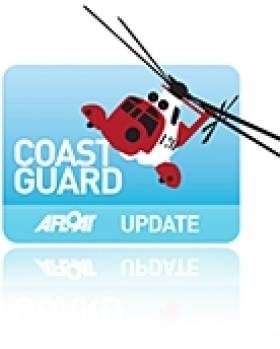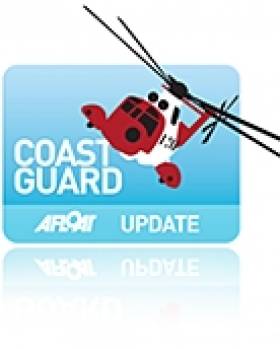Displaying items by tag: Coastguard
#COASTGUARD - The Irish Coast Guard is ill-prepared to respond to any major pollution incident off our coastline, according to a report commissioned by the Government.
As Lorna Siggins writes in The Irish Times on Friday, the report identified weaknesses in communication within the coastguard and in the training of volunteer crews, as well as deficiencies in the Marine Survey Office.
Minister for Transport Leo Varadkar, whose office commissioned the 'value for money' studies, said he would begin an action plan due in October to deal with such issues, which may require "tough decisions" - including the closure of a coastguard radio station at Malin or Valentia.
The studies by Fisher Associates highlighted the lack of a dedicated polluton control team within the coastguard, despite staff having "sufficient knowledge to respond".
Auditing of various pollution response plans was also found to be lax, while problems were also identified in management and training of the coastguard's 1,000 volunteers.
The Irish Times has more on the story HERE.
Coastguard Warns of Seaside Danger to Children
#coastguard – Now that the school holidays are here, Coastguards in Scotland and Northern Ireland have issued a timely notice to encourage children and families to stay safe whilst at the beach and along the coast.
Phil MacIver, HM Coastguard Sector Manager at Buchan said:
"We'd like to warn people against jumping into the water from cliffs and structures such as piers and bridges. Every year, nationally we deal with several serious injuries and some deaths as a result of this kind of activity. Tides make a massive difference and what may have been a deep lagoon could be just a shallow puddle only a couple of hours later. At this time of the year the water is still cold so be careful when entering the water, do it slowly and acclimatise gradually.
"Coastguards have also noticed an increase in the number of dogs that have fallen down cliffs. We'd like to warn people against attempting to rescue their dogs and encourage them to call the coastguard and ask for assistance.
"We want everyone who visits our coast to have a great time and to go home with happy memories. If you choose a lifeguarded beach and swim between the red and yellow flags you'll ensure that you have expert lifesavers looking out for you while you're in the water. The Royal National Lifeboat Institution (RNLI) has launched a new 'beach finder' mobile app to make it easy for anyone heading to the seaside this summer to find their nearest lifeguarded beach, helping them to have fun whilst enjoying a safe visit. The app is available to download free-of-charge on both Android and Apple devices from www.rnli.org/beach
"If you're looking after children make sure that they are well supervised by adults whilst at the coast. We deal with numerous cases of lost children every year and it can be very distressing for children and adults alike.
"If you notice that someone is in difficulty, either alert the lifeguard if one is available or call the coastguard on 999.
Finally, have a great time and return home safely."
More information here
#COASTGUARD - Staff from the Clyde coastguard in Scotland will go on strike late tonight in protest at the threatened closure of their station.
As the Clydebank Post reports, the strike in the early hours from 3am to 4am begins a week-long series of walkouts over the British government's plans to streamline the national coastguard network.
As previously reported on Afloat.ie, the control centre at Greenock is set to be scrapped with the loss of 31 jobs, while River Clyde rescues will in future be handled from Northern Ireland.
The Public and Commercial Services (PCS) union, which represents Maritime and Coastguard Agency employees, says that the closure of coastguard units around the UK coastline would result in the loss of local knowledge that may be key to saving lives.
The union's general secretary Mark Serwotka said: "We have always had grave concerns about the government's proposals to cut coastguard stations and staff, and we know this is shared by people in our coastal communities."
Last week campaigners in Merseyside launched an e-petition to stop the closure of Liverpool's search and rescue base, which covers North West England and much of the Irish Sea.
#RESCUE – A successful search was undertaken this afternoon for two missing divers off the Copeland Islands at the entrance to Belfast Lough.
Belfast Coastguard received a VHF radio call on channel 16 at 12:20 pm this afternoon from the 'Ballyholme' dive club boat reporting that two divers were overdue whilst conducting a drift dive.
Belfast Coastguard put out a Mayday relay broadcast to all vessels in the area to assist in the search. A Rescue helicopter was scrambled via Dublin Coast Guard. RNLI all weather lifeboats from Donaghadee and Larne along with the inshore Bangor lifeboat were requested to launch by Belfast Coastguard. Coastguard Rescue Officers from Bangor were sent to conduct a coastal search in the vicinity of Orlock Point.
Gary Young, Watch Manager, Belfast Coastguard, says:
"Cobblers Den, a vessel on scene, located the two divers and assisted with their recovery from the water into Bangor lifeboat. The two divers were then transferred onto Donaghadee lifeboat to be medically assessed. The divers were reported as being fit and well and no further medical attention was required.
Belfast Coastguard would like to thank all the vessels that responded to the Mayday relay broadcast."
#COASTGUARD - Campaigners for the Liverpool coastguard are urging the public to sign an e-petition to stop the closure of the city's search and rescue base.
According to BBC News, the Liverpool station at Crosby is one of eight centres across the United Kingdom set to be shut as part of the British Government's reorganisation of the national coastguard network.
Twenty jobs are expected to be lost in the closure, which could see the base for the UK Maritime Operations Centre move to England's South Coast.
Belfast's coastguard command centre at Bregenz House in Bangor was saved from the same fate last summer, as previously reported on Afloat.ie, but concerns remain over its staffing levels.
Liverpool coastguard currently covers the area in North West England from the Dee Estuary to the Mull of Galloway in Scotland, as well as much of the Irish Sea beyond the Isle of Man.
Last weekend alone it responded to 56 incidents in a 48-hour period.
Local staff have expressed fear that consolidation will see the region served by coastguards with no familiarity with the area.
A spokesperson for the Maritime and Coastguard Agency (MCA) reiterated Shipping Minister Mike Penning's intention to "to create a resilient and fully networked national rescue co-ordination service".
The Liverpool coastguard e-petition is available via the campaign website at SaveLiverpoolCoastguard.org.
#COAST GUARD – Coast Guard skills were tested at the seventh Joint Search and Rescue Competition between the Irish Coast Guard and HM Coastguard Northern Ireland in Youghal, Co Cork, at the weekend.
The purpose of the event is to increase the level of professionalism of all coast guard members on the island.
Twelve team members from each of the divisions from Dublin, Malin, Valentia and HM Coastguard in Northern Ireland competed.
Organisers say the games are another step in developing joint training programmes between the Irish Coast Guard and HM Coastguard Northern Ireland.
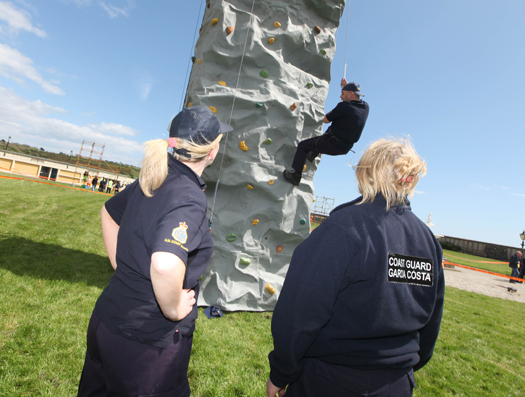
Members of Dunmore East Coast Guard; Joanne Carroll and Martina McCarthy watching Derek Barrett on the climbing wall Photos: John Hennessy
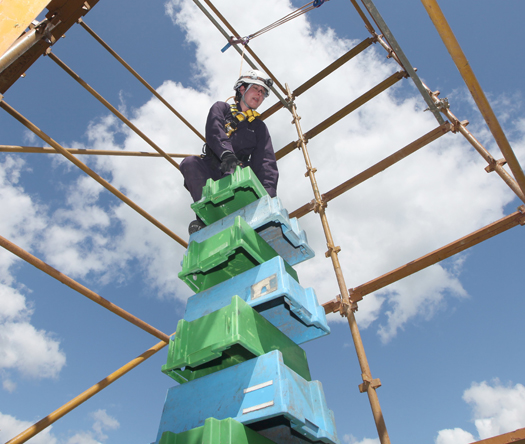
Connie Heby, Achill Coast Guard, reaching new heights
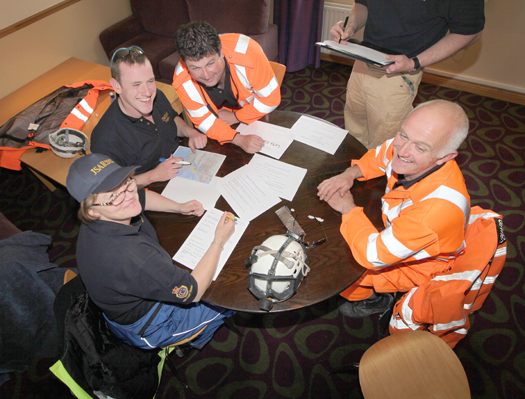
Inter Divisional team C participating in the table top quiz
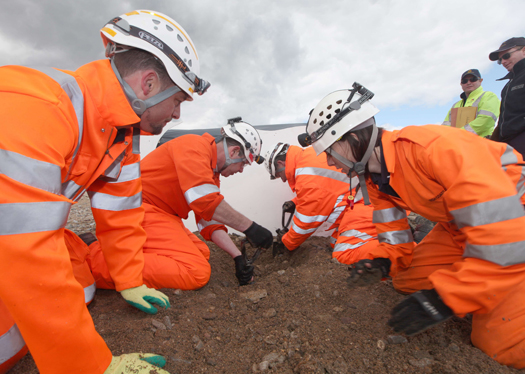
Dublin Coast Guard Team B, Joe Andrews, Fergus Kernan, Fran Conroy and Sarah Horan
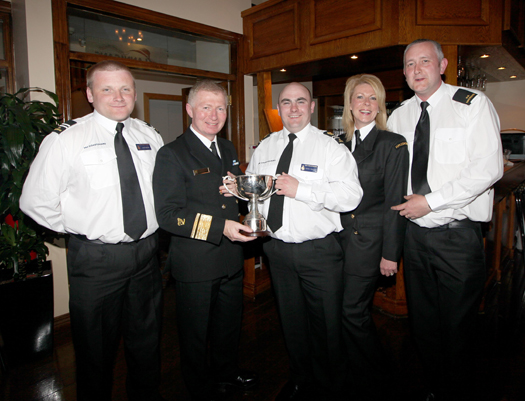
Chris Reynolds, Director of IRCG, presenting the Captain Kirwan Cup to the overall winners of JSAR 2012, HM Coast Guard Team A, John Austin, Daniel McAuley, Gwenda Kenneally and Gareth McKeller, at the celebration dinner in the Quality Hotel, Redbarn, after the 7th annual JSAR 2012 competition
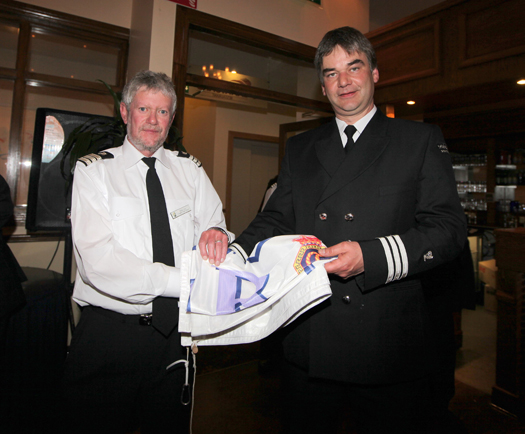
Mike Lee, OIC Youghal Coast Guard, handing over the JSAR flag to Frank Heidtke, Dingle Coast Guard Area Officer, who will be hosting next years competition
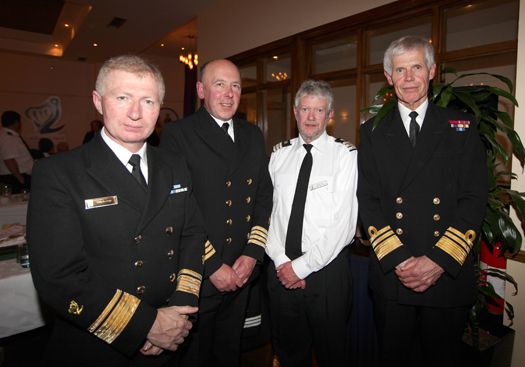
Chris Reynolds, Director of IRCG, Gerard O'Flynn, Manager Voluntary Services & Training at IRCG, Mike Lee, OIC Youghal Coast Guard and Vice Admiral Sir Alan Massey, chief executive of the UK Maritime and Coastguard Agency
Search Ongoing in Belfast Lough for Missing Baby
#FERRY BABY – Belfast Coastguard is continuing to coordinate a search for a missing child who is believed to have fallen from a ferry in bound to Belfast from Scotland.
Last night the Coastguard received a call from a ferry reporting that two people were in the water in Belfast Lough. One person was recovered by the pilot boat at 6.25 pm, 15 minutes after the alarm was raised and was taken to hospital.
Last night's search involved RNLI lifeboats from Bangor and Donaghadee, an Irish Rescue helicopter, police helicopter, fast rescue craft from two ferries, tugs and a pilot boat. Coastguard rescue teams from Bangor and Portmuck also searched the shoreline of Belfast Lough. This search of Victoria Channel and Belfast Lough was suspended at 10pm last night and resumed at first light this morning with RNLI lifeboats from Bangor and Donaghadee, three Police Rhibs, the fishery protection vessel 'Banrion Uladh' and harbour patrol boats. Coastguard rescue teams from Port Muck and Bangor will also resume their shoreline search at 8am.
Steve Carson, Belfast Coastguard watch Manager says:
"There was an extensive search last night that sadly did not find the missing child so we are looking again for them this morning."
#COASTGUARD – Belfast Coastguard is co-ordinating the search for two people who were seen falling from a ferry in bound to Belfast from Scotland.
Earlier this evening Coastguards received a call from a ferry reporting that two people were in the water in Belfast Lough. One person was recovered by the pilot boat at 6.25 pm, 15 minutes after the alarm was raised and was taken to hospital.
Bangor and Donaghadee RNLI lifeboat, an Irish Rescue helicopter, police helicopter, fast rescue craft from two ferries, tugs and a pilot boat are all engaged in a search for another missing person in the vicinity of Victoria Channel, Belfast Lough. Coastguard rescue teams from Bangor and Portmuck are also searching the shoreline of Belfast Lough.
Ian Murdoch, Belfast Coastguard watch Manager says:
"We have been searching for the second missing person for over two hours but sadly we have not found any sign of them so far."
#COASTGUARD - Youghal in Co Cork will host the seventh Joint Search and Rescue (JSAR) competition between the Irish Coast Guard and HM Coastguard Northern Ireland this coming weekend 11-13 May.
The contest is organised by the volunteers of the Youghal Coast Guard unit, and aims to increase the level of awareness of all coast guard members in the island of Ireland, as well as enhance co-operation between services.
Twelve teams from each of Ireland's four coastguard divisions of Dublin, Malin, Valentia and Northern Ireland will take part. A wide range of skills will be tested, from leadership to search planning and co-ordination, chart work, knots, communications and salvage pumping.
The competition also provides a forum for the national maritime SAR management to discuss policy in an informal and friendly environment, and for volunteers from both jurisdictions to exchange their experiences.
Youghal Online has more on the story HERE.
#COASTGUARD - The Irish Coast Guard has ended its search for a ferry passenger believed to be missing off the coast of Wexford, as the Irish Examiner reports.
The alarm was raised early yesterday morning when the passenger, who had been travelling by coach on the Irish Ferries vessel Isle of Inishmore from Pembroke to Rosslare, was not on board the ferry on arrival in Wexford.
Though the coastguard has stood down its search, Gardaí at Rosslare were as of yesterday continuing to search the shoreline.


























